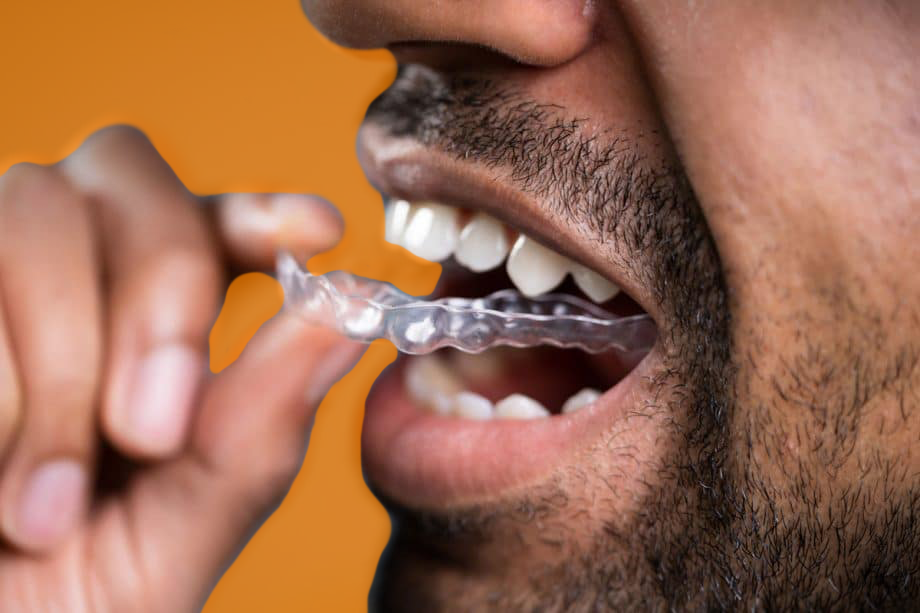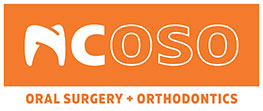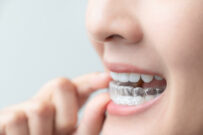
THE DAY YOUR BRACES come off will arrive sooner than you think, but your orthodontic treatment won’t quite be over yet. In order to keep the straight smile you and our practice are working so hard for, you’ll need to wear your retainers. Retainers are different from braces in many ways, including how to take care of them.
Why Does A Retainer Need Cleaning?
As you wear your retainer, it accumulates bacteria, plaque, and tartar. We brush and floss to prevent this buildup on our teeth and gums, and we have to clean our retainers for the same reason. Without sufficient cleaning, a retainer can become smelly, foul-tasting, filmy, cloudy, and covered in small white spots.
Removable retainers should be rinsed with cool water and brushed at least once a day. It can be tricky to floss around a permanent retainer, but doing so is crucial to prevent tartar from building up in the crevices around it. You can use threaders to make flossing easier or invest in a water flosser if you don’t have one already.
Deep-Cleaning Your Retainer
Like with teeth, daily cleanings can only do so much, which is why retainers need the occasional deep clean to remain good as new. For a permanent retainer, the hygienist will be able to take care of this at your regular cleaning appointments, but you can clean a removable retainer yourself.
Deep-cleaning a retainer is easy and can be done very cheaply. You can use special retainer cleaning tablets if you prefer, but a simple mixture of baking soda and water will do the trick. Water and vinegar would also work, or you could use hydrogen peroxide, but never use harsh chemicals like bleach. Soak the retainer for a few minutes, then rinse it and let it dry.
Proper Retainer Storage
If you only have to wear your retainer part-time, then it’s crucial to know how to store it when it’s out of your mouth. Harmful bacteria love warm, damp, enclosed environments, so make sure you keep your retainer somewhere safe and cool that it can fully dry when you aren’t wearing it. (The same goes for how you should store your toothbrush!) For some types of retainers, it’s better to soak them in water to store them, so be sure to check with us about what your type of retainer needs.
Are Retainers Really So Important?
Yes! Our teeth are held in place by the jaw bone and the periodontal ligament. These supporting structures need time to get used to the new, straight position of your teeth. Wearing a retainer for the amount of time specified by the orthodontist ensures that your jaws will get used to the new arrangement. Without the retainer, your teeth can slide back towards their original position until you need another round of braces to fix it! Nobody wants that.
Come To Us With Any Retainer Questions
Whether your retainers are clear plastic or wire and acrylic, bonded or removable, we’re here to answer any questions you have about how to take care of them. This is a crucial part of your orthodontic treatment and we want you to have the best experience and result possible!
Congratulations on graduating from braces to retainers!
Contact our office with any questions by chatting live, submitting a contact us form, or calling us today at 833-GO-NCOSO!



